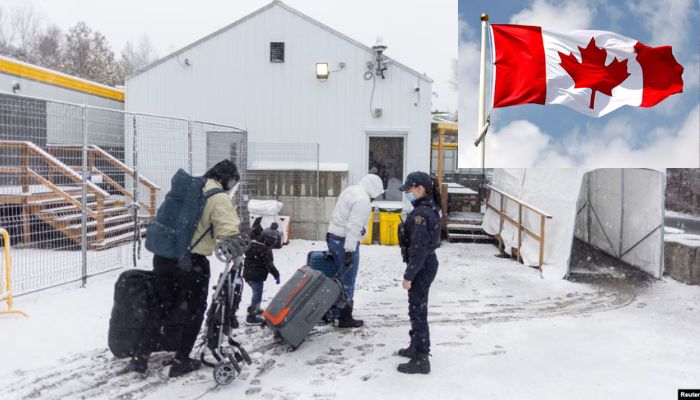
Canada has built a strong reputation as a welcoming nation for asylum seekers. With its commitment to human rights and international refugee protection, Canada offers a safe haven for individuals fleeing persecution, war, and violence. Understanding the asylum process, its benefits, and its challenges is crucial for those considering seeking refuge in the country.
What Is Asylum?
Asylum is a legal status granted to foreign nationals who fear persecution in their home country due to their race, religion, nationality, political opinion, or membership in a particular social group. Asylum seekers in Canada apply for refugee protection under international agreements, including the 1951 Refugee Convention and the Immigration and Refugee Protection Act (IRPA).
How to Apply for Asylum in Canada
There are two main ways to apply for asylum in Canada:
1. At a Port of Entry
Individuals can request asylum upon arrival at a Canadian border, airport, or seaport. They will undergo an eligibility assessment by the Canada Border Services Agency (CBSA) or Immigration, Refugees, and Citizenship Canada (IRCC).
2. Inside Canada
Asylum seekers already in Canada can apply at an IRCC office. If deemed eligible, their case will be referred to the Immigration and Refugee Board (IRB) for further evaluation.
Eligibility Criteria for Asylum
To qualify for asylum in Canada, individuals must prove that they face serious persecution or threats in their home country. However, certain factors may make someone ineligible, including:
- Having already been granted refugee status in another country.
- Previous rejection of an asylum claim in Canada.
- Criminal history or security concerns.
The Asylum Hearing Process
Once an asylum claim is accepted for review, the applicant will attend a hearing before the Immigration and Refugee Board. Here, they must provide evidence and testimony to support their claim. The decision will determine whether they will be granted refugee status or have their application denied.
The Benefits of Seeking Asylum in Canada
1. Legal Protection and Human Rights
Canada upholds international human rights laws and provides legal protection to asylum seekers. The government ensures that individuals seeking refuge are not deported to countries where they may face persecution or harm.
2. Access to Healthcare and Social Services
Asylum seekers in Canada are eligible for healthcare services under the Interim Federal Health Program (IFHP). They also have access to social assistance, housing support, and essential services to help them integrate into society.
3. Pathway to Permanent Residency
Successful asylum applicants can eventually apply for permanent residency, allowing them to build a stable and secure future in Canada. Permanent residents can later apply for Canadian citizenship.
4. Educational Opportunities
Asylum seekers in Canada have access to free public education for children and, in some cases, post-secondary education opportunities. This helps them and their families integrate into the country and build a better future.
5. Work Authorization
Once an asylum seeker’s application is in process, they may be eligible for a work permit, allowing them to support themselves and their families while awaiting a decision on their claim.
The Disadvantages of Seeking Asylum in Canada
1. Lengthy and Complex Process
The asylum application process in Canada can be lengthy, sometimes taking months or even years. Applicants must provide substantial evidence to support their claims, which can be challenging to obtain.
2. Risk of Application Rejection
Not all asylum claims are approved. If an application is rejected, individuals may face deportation, leading to uncertainty and distress.
3. Limited Rights During Processing
While asylum seekers receive certain benefits, their rights are limited during the processing period. They may not have full access to all employment opportunities and government programs until their claim is approved.
4. Financial and Emotional Struggles
The process of seeking asylum can be financially and emotionally draining. Many asylum seekers arrive in Canada without financial resources, making it difficult to secure stable housing and employment.
5. Challenges in Integration
Language barriers, cultural differences, and adjusting to a new legal system can make integration difficult for asylum seekers. Some may struggle to find community support or navigate the complexities of the immigration process.
How IVDEE Travels Can Assist You
At IVDEE Travels, we understand the complexities of seeking asylum and relocating to Canada. Our team provides expert guidance on travel logistics, visa application processes, and essential information to make your journey smoother. Whether you need help with travel arrangements or immigration consultation, IVDEE Travels is here to support you every step of the way. Contact us today to explore your options and receive professional assistance tailored to your needs.
Conclusion
Canada’s asylum system provides a vital lifeline for those escaping persecution and hardship. While the process can be complex and challenging, the opportunity for safety, stability, and a new life makes it worthwhile for many. Understanding the asylum process, its benefits, and its obstacles is key to making informed decisions when seeking refuge in Canada.







